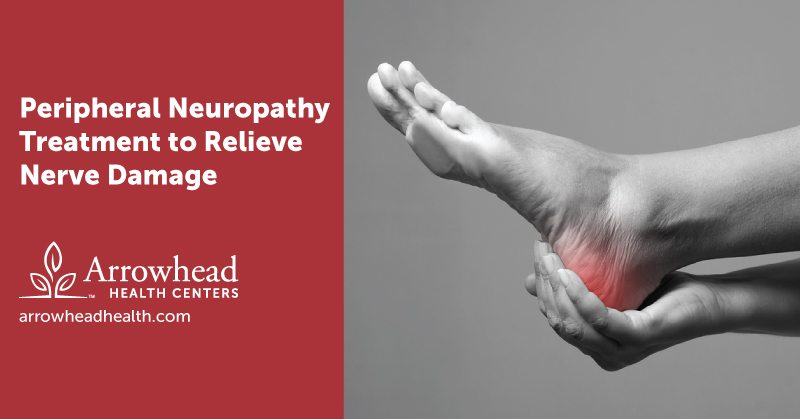 Are you one of the estimated 20 million people in the United States that suffer from nerve damage? Are you looking for a peripheral neuropathy treatment that will actually relieve nerve damage? Whether your nerve damage was caused by a traumatic injury, diabetes, or unknown reasons, there is a treatment for you.
Are you one of the estimated 20 million people in the United States that suffer from nerve damage? Are you looking for a peripheral neuropathy treatment that will actually relieve nerve damage? Whether your nerve damage was caused by a traumatic injury, diabetes, or unknown reasons, there is a treatment for you.
What is Peripheral Neuropathy
According to Mike Bechtol, Director of Care Logistics at Arrowhead Health Centers, peripheral neuropathy means dead or dying nerves. As opposed to affecting your central nervous systems (brain and spinal cord), peripheral neuropathy affects the communication network that transmits information to the central nervous system. Peripheral nerves are the nerves that send sensory information back to the brain from the arms, legs, fingers, toes, elbows, knees, heels, etc. They send messages to the brain saying the feet are cold, and the hands are stiff. The peripheral nerves are also responsible for sending messages from the brain and spinal cord to muscles causing them to move. Peripheral neuropathy interferes with these signals disrupting and sometimes overshadowing the message transmission. As a result, burning pain, tingling, impaired digestion, and many other symptoms can develop.What are the Symptoms of Peripheral Neuropathy
 Since peripheral neuropathy can affect the numerous nerves in the body, a wide range of symptoms exist.
Since peripheral neuropathy can affect the numerous nerves in the body, a wide range of symptoms exist.
- Irritating prickling, numbness, & tingling
- Unexpected electric-like shocks in feet
- Loss of balance and fear of falling
- Difficulty climbing stairs or staying active
- Losing sleep due to pain, burning, or cramping
- Constant need to move legs or feet
- Extreme sensitivity to touch
- Painful cramps
- Fasciculations (uncontrolled muscle twitching visible under skin)
- Muscle atrophy
- Decreased reflexes
- Failure to sense pain *like cutting yourself with a knife, or a burn)
- Extreme painful reaction to otherwise non-painful stimuli
- Inability to sweat normally and heat intolerance
- Loss of bladder control or organ functions
- Gastrointestinal malfunction: diarrhea, constipation, incontinence
- Problems swallowing
What Causes Peripheral Neuropathy

An injury from an auto accident years ago can sometimes lead to Peripheral Neuropathy Symptoms






Leave a Reply